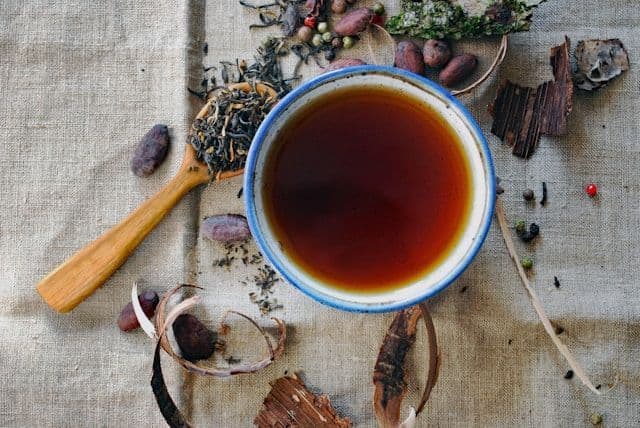Tea And Pregnancy
Food and Nutrition
Obie Editorial Team

Tea stands proudly as the world's second most consumed drink after water. Intriguingly, whether it's black, green, oolong, or white, all teas originate from the same remarkable plant, Camellia sinensis. This sub-tropical, evergreen plant is indigenous to Asia but now thrives globally. When you hear “tea” used in reference to chamomile, rooibos, or fruit varieties, know that these are technically herbal teas or tisanes, distinct from the traditional tea types.
The magic of brewed tea, or the "liquor," lies in three primary components:
1. Essential Oils - Infusing delightful aromas and flavors.
2. Polyphenols - Delivering the briskness or astringency you feel, these compounds are also loaded with health benefits.
3. Caffeine - This naturally occurring energy booster shares its roots with coffee, chocolate, and Yerba Mate.
The distinction between black, green, white, etc., is all about how the tea leaves undergo processing.
Green Tea's Impact on Male Fertility
Green tea polyphenols (GrTPs) offer intriguing benefits for male fertility by enhancing the quality of both male and female gametes. This reliance is majorly on the catechins' prowess to diminish Reactive Oxygen Species (ROS) production. With potent antioxidant properties, GrTPs are known to enhance key semen parameters including sperm concentration, motility, morphology, DNA integrity, and overall fertility rates. Dive deeper into the potential positive effects of green tea on sperm by exploring this research study.
The Role of Green Tea in Pregnancy
You might consider green tea a wise choice while fostering fertility, thanks in part to studies indicating its potential to boost cervical mucus production. It’s also a favored low-caffeine substitute for coffee aficionados. However, it's crucial to evaluate whether green tea's advantages align with your pre-pregnancy nutrition goals. In some cases, green tea might not be as beneficial during pregnancy or conception periods.
Here's why: Both green and black tea influence your body’s capacity to absorb folic acid, an essential B-vitamin pivotal for early fetal development. Equally noteworthy is their impact on iron absorption, primarily from non-meat sources like beans and tofu. The primary antagonist here is EGCG, the antioxidant hero of green tea. While this compound also plays a role in cancer defense by inhibiting the enzyme dihydrofolate reductase (DHFR), during pregnancy, such inhibition can unfavorably lead to folate deficiency. Insufficient folate levels can heighten the risk for conditions such as spina bifida or other neural tube defects, which are intricately connected to the fetus's nervous system development during these vital first stages.
For those outside of the pregnancy demographic, incorporating green tea in your daily regimen can be highly beneficial due to its acclaimed health advantages. Packed with powerful antioxidants known as polyphenols, green tea showcases abilities to stave off heart disease, enhance memory, and combat cancer. EGCG, a prominent catechin, targets harmful free radicals which can instigate cellular damage and inflammation. For maximizing EGCG's absorption, consider pairing your green tea with meals seasoned with black pepper—this spice significantly boosts bioavailability.
For expectant women, it's worth recognizing that green tea contains less caffeine compared to coffee, ranging approximately from 20-50 mg per serving, whereas coffee generally contains about 100 mg. During conception attempts and the crucial first trimester, when the fetus's neural tube undertakes development, green tea might be better avoided. Afterward, moderate consumption of one to two cups daily becomes possible, ideally consuming between meals to minimize disruptions in iron and folic acid uptake. It's reassuring to note that during pregnancy, controlled caffeine consumption remains safe; up to 200 mg is permissible, equating to an 8-12-ounce coffee or four 8-ounce cups of green or black tea per day. For more insights into caffeine usage during pregnancy, explore our comprehensive guide.







